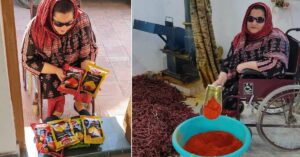Confusion, Anger & Unadulterated Joy: Growing Up With My Brother Who Has Down Syndrome
Jyoti Kaur, a lawyer and resident of New Delhi, pens a heartfelt note about her brother Raby, who was born with Down Syndrome, on what she has learned from him, and how their relationship has evolved over time.
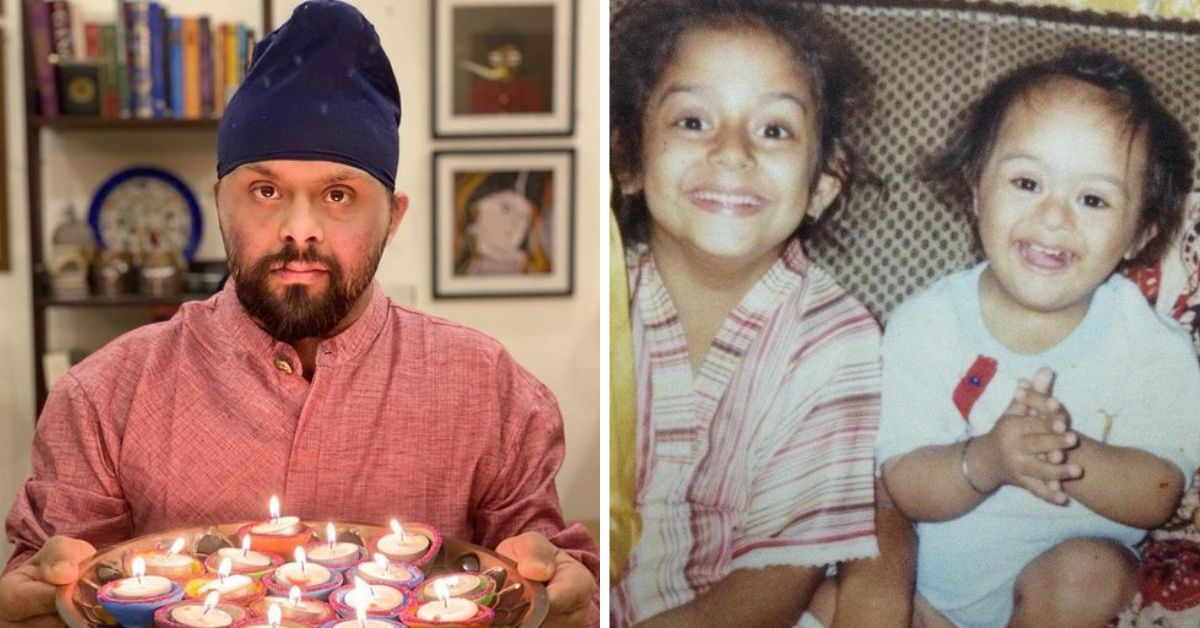
It was an exceptionally hot day on 7 June 1987 in Kuwait. I remember it all so vividly. Ma was in the hospital and I was told that she would deliver my sibling any time now. I was excited but indifferent. All three and a half years old, I couldn’t differentiate my emotions at the time. All I knew was that soon, I would go from being one of two children to becoming the middle child.
After my brother was born, I spent the next few weeks plotting to have this little boy stay back at the hospital. In hindsight, I realise it is an emotion that many older siblings go through.
I considered rolling him under the bed, or even wrapping him up in a carpet and leaving him outside the house.
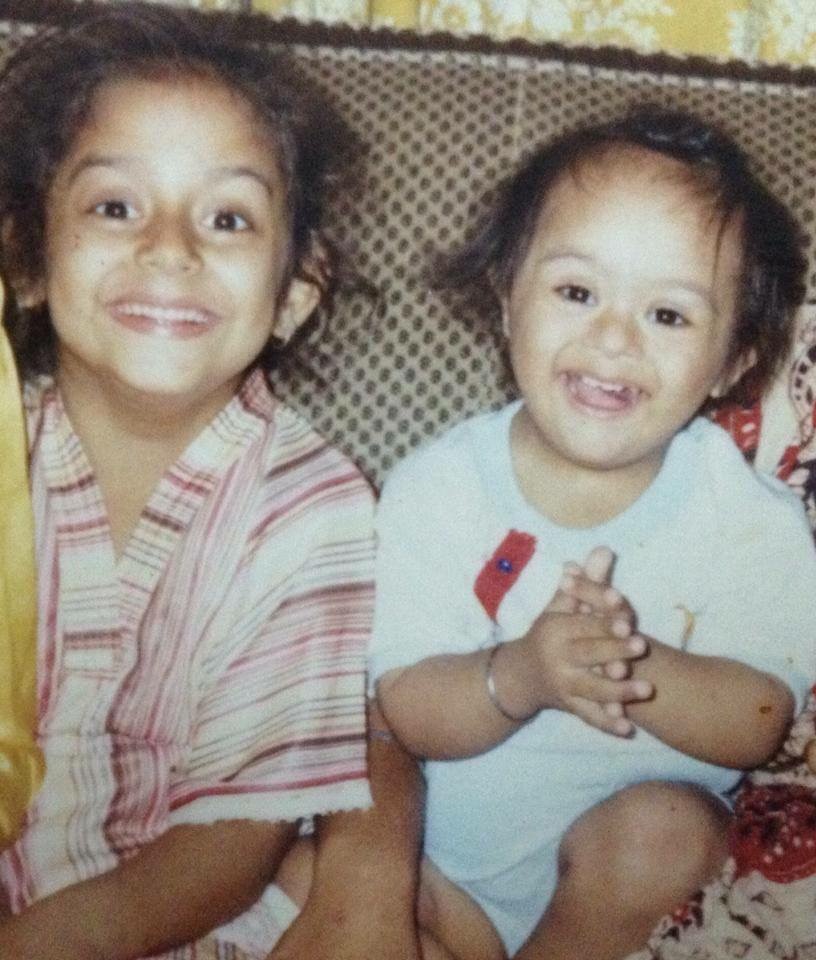
But soon, I realised that I had a new playmate, for which I was grateful. Little by little, he chipped away at my rock-solid animosity, and as I began to appreciate him, my attitude towards the baby began changing.
As we grew up, I started noticing that his features weren’t the same as ours. I didn’t know the reason back then. All I knew was that my brother looked different.
‘He was so much more than a set of chromosomes’
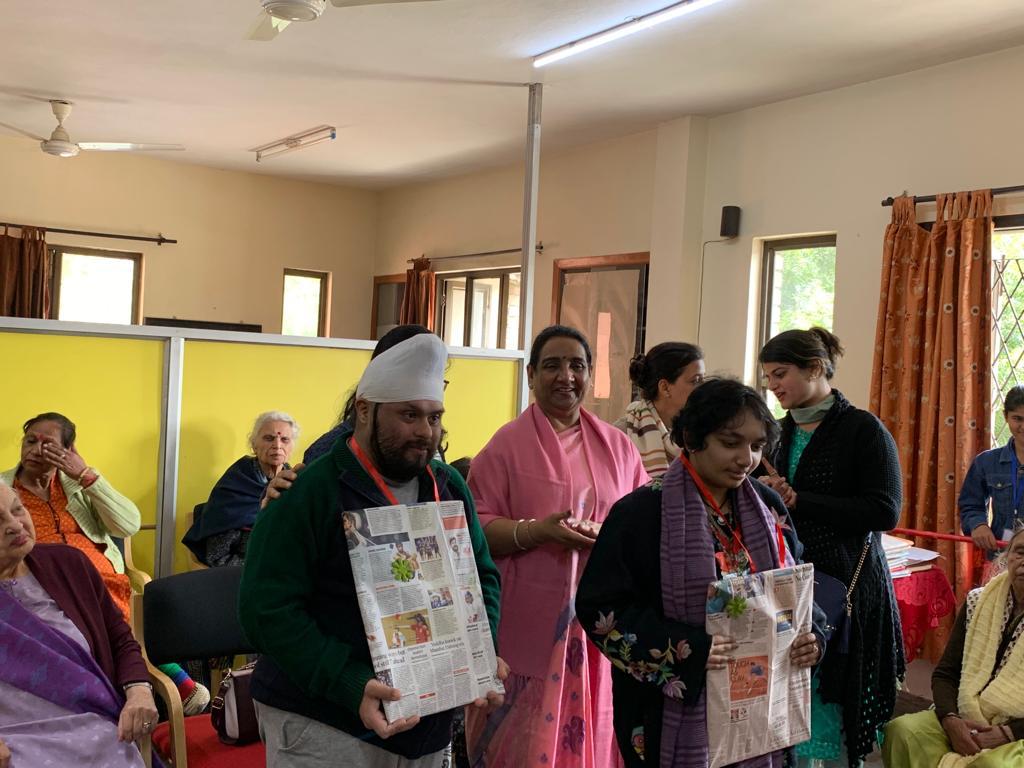
Ma knew that Raby had Down Syndrome when she was carrying him. She chose to give birth to him anyway. He was named thus to indicate something given by rab (God). From the moment he entered our lives, it didn’t take too long for him to cement his place in our hearts.
As far as I can remember, there was never any discussion at home about Raby being ‘different’ from us. For Ma, he was at par with her other two children. He never got any preferential treatment — if he made a mistake, he was scolded, and if he did something good, he was praised.
To me, Raby’s condition was just a differentiator. Some people are fat, thin, tall, short and so on. My brother had Down Syndrome. That was it. The genetic condition did not make him who he was. He is so much more than some chromosomes.
The only difference in our upbringing was that while I went to a school, Raby was home-schooled. At the time he was growing up, there was very little awareness of Down Syndrome. Schools were not equipped to handle a child who might have ‘special’ needs.
But at home, his education was the toughest among all of ours.
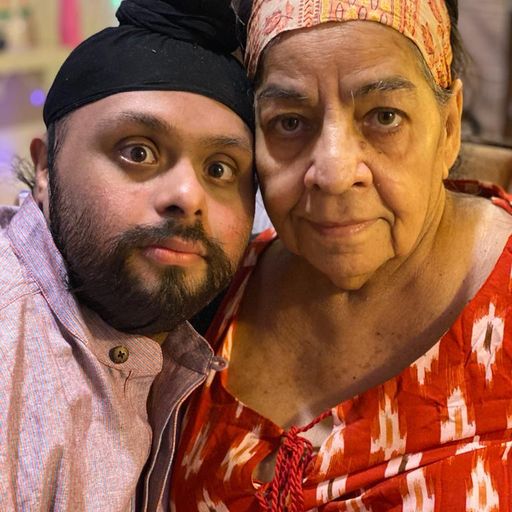
Ma would spend hours with him, and many of them were difficult and hard — for both Raby and for her. She drove him to push his boundaries, and single-handedly equipped him to lead an independent life. Today, as he turns 35, I see the value in all she did for him.
Children with Down Syndrome do well when they follow a routine, and any disruption can set them back by years. But only three years after Raby’s birth, as Iraq’s military occupation over the country began, we had to flee Kuwait overnight.
With nothing to call our own except for the clothes we had travelled with, life was tough for the first few months. The change was tough — from our previous life of luxury, seeing Ma use a kerosene stove to cook us meals was a memory I cannot forget.
As life became tougher, Ma got busier, which forced Raby and I to spend more time together. We would come up with our own games, laugh, fight…and eventually, the negative experience of being forced out of our home led to forming an unbreakable bond.
Finding his own purpose
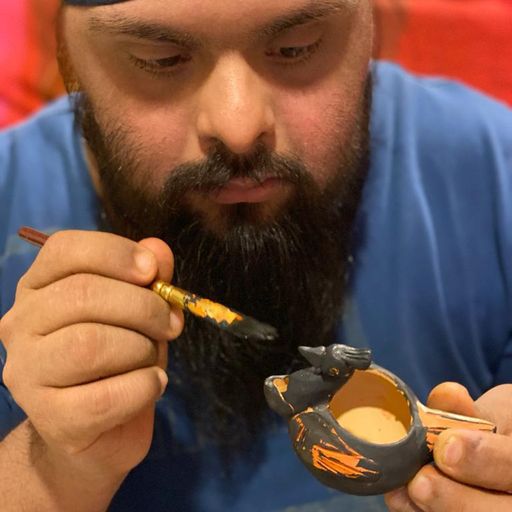
While Raby was easy to fall in love with, I must admit that I went through my own set of emotions when it came to him. I was worried about how people would look at him and felt nervous that he might embarrass me in front of my friends. Although I never disliked Raby, I felt emotions that I could not put a finger on and or explain to anyone.
I recall one particular annual day at school, where my family was present as well. I was going through pre-emptive anger at what people might say to Raby. But I underestimated him. I didn’t think he had the power to win people over.
At the same time, I never hid his condition from my friends. They all knew he had Down Syndrome. When they visited our home, there was no awkwardness in their interactions with Raby. In hindsight, it was the awkwardness that I had created in my own head that troubled me.
Raby would behave the same with everyone. Like other kids with Down Syndrome, he never had any behavioural issues. I cannot remember even one instance where he threw a fit, got angry, or sat in a corner and sulked. For him, everything and everyone was good.
The lack of negative emotion in him is so commendable. Perhaps the lack of understanding towards materialistic things makes him enjoy life and revel in the small things.
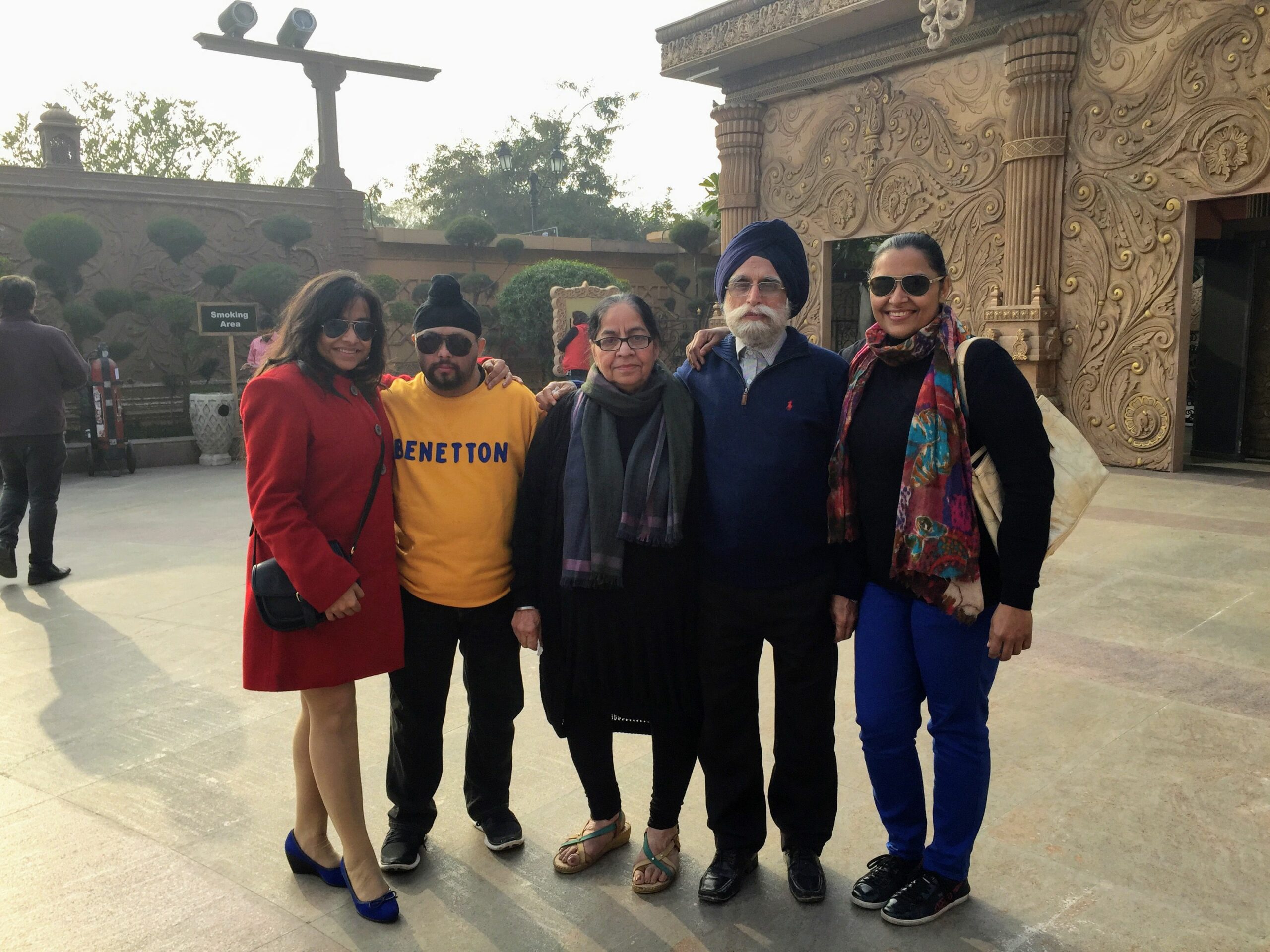
As we grew older, I went on to work in a law firm. Raby also wanted to earn his own money — it was something he was very keen on. He put his interest and talent in art to use and began making paintings and colouring diyas that he would sell for Diwali.
The first time Raby was paid for making diyas is a fond memory for all of us. He was so happy, and we all celebrated together. He was raring to go and make more. He now works on his artwork and is open to making custom pieces of art work as well. Watching him work on his art is like watching someone meditate. He doesn’t get up from his seat until he is done with the task on hand. Raby has taught me what it means to be committed and diligent to work.
Battling an unforeseen loss
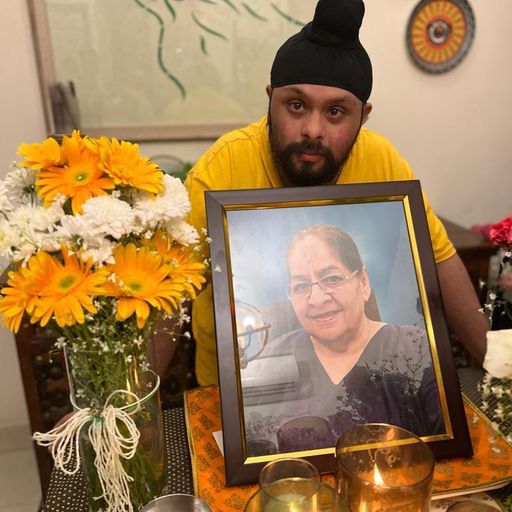
In February 2022, we lost Ma to cancer. I imagined it would be a big blow to Raby. After all, he had spent the most time with her. She had been his biggest cheerleader and supporter. But he surprised me with how maturely he handled the situation. It was as though he knew what was coming. He had prepared himself and given Ma the assurance to go in peace.
A day before Ma’s passing, Raby spent the day sitting beside her. He played the shabad kirtan (hymn, sacred song) for her on loop. The day she passed, there was a strange sense of calm in him. He had learnt how to deal with the loss. My sister and I gathered most of our strength from watching him.
A fear that Ma and I shared was what would Raby do after us. How would he live? But at Ma’s prayer meet, he put our worries to rest. A group of his friends stood beside him through it all. I’m sure even Ma was smiling when she saw that.
I am often asked by people who don’t know us very well if having a sibling with Down Syndrome is hard on us. On the contrary, I tell them that it has been so easy, because he has filled our lives with unadulterated happiness. We couldn’t have asked for anything more.
Raby enjoys art and some of his work can be accessed here.
(Edited by Divya Sethu)
This story made me
- 97
- 121
- 89
- 167
Tell Us More
We bring stories straight from the heart of India, to inspire millions and create a wave of impact. Our positive movement is growing bigger everyday, and we would love for you to join it.
Please contribute whatever you can, every little penny helps our team in bringing you more stories that support dreams and spread hope.








